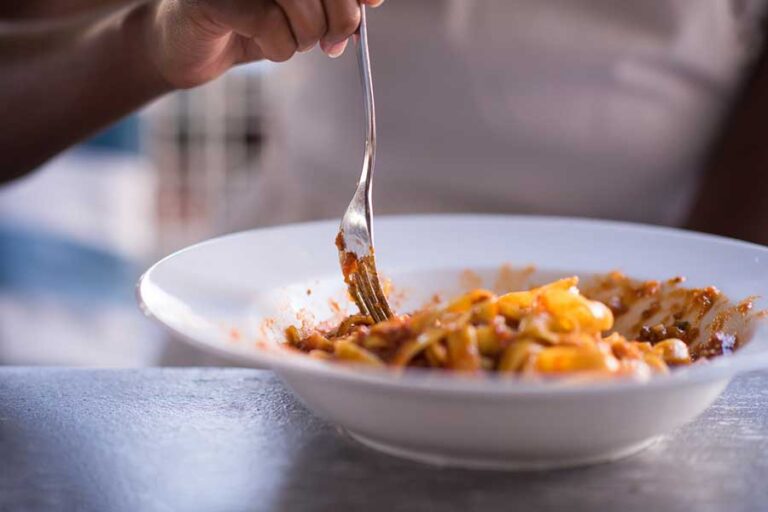This erev Shabbos is unique. Normally Fridays, especially in the afternoon, are a time when we try to abstain from any serious eating for it is very preferred to sit down to the Shabbos meal with a teiâavon, to have a hearty appetite. This causes the meal to be enjoyable and thus a greater honor to the Shabbos. The Kitzur Shulchan Aruch recommends that one should give the digestive system a rest once a week and he further recommends that a good idea is to skip lunch on Friday so as to have a better appetite for the seudas Shabbos. The Gemara also tells us of a family who regularly sat down to a serious meal on Friday afternoon and they came to a bad end.
However, this Friday is the exception. Since it is erev Yom Kippur, it is a big mitzvah to eat throughout the day and the Gemara even teaches us that one who eats on erev Yom Kippur is considered like he is fasting.
Why is it a big mitzvah to eat on erev Yom Kippur? The simple reason is because it helps us to be able to fulfill the great mitzvah of fasting on Yom Kippur. This also explains why the eating is considered like fasting; since there is a Talmudic rule of hechsher mitzvah kâmitzvah, the preparation of a mitzvah is like the mitzvah itself. So, our eating in preparation for the fast is like fasting itself.
In Tefillas Zakkah, we ask Hashem that the diminishment of our body fat and blood during the 25-hour fast should be considered like a sacrifice that we offer before Hashem. Since there is a mitzvah to fatten a korban, a sacrifice, before we bring it to the altar, in a similar way our eating on erev Yom Kippur is fattening our sacrifice in honor of Hashem.
The Sefer HaTodah says that we eat on erev Yom Kippur to celebrate the gift of atonement that Yom Kippur brings for us. Many explain that Yom Kippur is really another Simchas Torah, since it was on Yom Kippur that Moshe Rabbeinu came down with the second luchos, the second set of tablets. As such, we should have festive meals in honor of the Torah. Since we canât do this, we compensate by having the festive meals on erev Yom Kippur. We should remember this reason when we eat heartily: that we are doing it also in honor or the Ten Commandments. Another reason suggested is that when we eat before the fast and then completely desist from eating, the transition is even more challenging and therefore even more rewarding.
There are possible halachic differences between the reasons. Is there a mitzvah to eat the night before Yom Kippur? If it is merely in preparation for the fasting, it is questionable whether the night before is that helpful. But if it is compensatory for the holiday of the giving of the second luchot, then we should certainly celebrate the night before like for any yom tov which has both an evening meal and a day meal. There is also the question of whether women have the mitzvah to eat. If itâs to prepare for the fast, the women certainly have to prepare as well. If, however, it is compensatory, then since it is a positive command limited by time, women would be exempt. Halachically, we should add to our eating even the night before and women should certainly eat then as well.
On Yom Kippur, when we ask for a New Year of life, we try to repair the original sin that brought death to mankind: the eating of the forbidden fruit of the eitz hadas. We make the repair in the positive and in the negative. Since Adam and Chava ate what was wrong, we fast to atone for the forbidden eating. Then, we also eat correctly fulfilling the mitzvah of eating on erev Yom Kippur atoning yet in another way for the sinful eating of the forbidden fruit.
So, letâs enjoy festive meals this Friday, a quite unusual event, and may it help to bring all of us a gmar chasima tovah uâmesuka, a seal of long life, good health and every kind of sweetness.
Transcribed and edited by Shelley Zeitlin.


